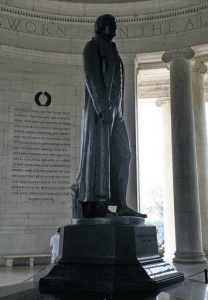 Who did what? is one of those questions that social historians love to consider. For instance, who started hospitals? who started education? who focused on civil rights? who advocated for the education of women equal to men? Cases have been made for a variety of social goods as the result of Christians, Christian theology and Christian activism. I have no desire to discuss the above social goods, but there is one that is worthy of a conversation:
Who did what? is one of those questions that social historians love to consider. For instance, who started hospitals? who started education? who focused on civil rights? who advocated for the education of women equal to men? Cases have been made for a variety of social goods as the result of Christians, Christian theology and Christian activism. I have no desire to discuss the above social goods, but there is one that is worthy of a conversation:
Who brought the idea of religious freedom into public space?
In a breathtaking and expansive published lecture, Robert Louis Wilken contends that religious freedom is a social good because of Christians. His book is called The Christian Roots of Religious Freedom (The Pére Marquette Lecture in Theology 2014; Milwaukee: Marquette, 2014).
One narrative social historians tell is that religious freedom, or the doctrine of tolerance, came into existence as a result of the Enlightenment. It is reasonable to contend tolerance as we know it today comes from the Enlightenment, in particular, from John Locke’s famous 1689 Letter on Tolerance. Others push back a bit and suggest it was actually Roger Williams at Providence Plantation (Rhode Island). Wilken then says some think it was the 16th Century, though Wilken ignores the Anabaptist pleas (largely unheeded of course).
But Wilken points in this wonderful romp through Western history to two primary origins for religious freedom:
The so-called Edict of Milan, which he observes was neither an Edict nor from Milan, but from Constantinople, though Constantine’s and Licinius’s conversation at Milan might be called the protocols of Milan. As told by Lactantius,
When you see that this has been granted to [Christians] by us, your Worship will know that we have also conceded to other religions the right of open and free observance of their worship for the sake of the peace of our times, that each one may have the free opportunity to worship as he pleases; this regulation is made that we may not seem to detract from any dignity of any religion.
It owes some to Galerius two years later but as stated here there is a fresh and expansive understanding that religion is personal and cannot be coerced, and as time moves forward “conscience” gets connected, leading to a full display of the idea that faith should not be coerced and each person should be respected to believe and worship as he or she chooses.
Wilken traces this back even further to Tertullian, and at this point we are led to an important social context: the religious minority or marginalized is the social location for the origin of religious freedom. (Freedom is more expansive than toleration.) Here are the words of Tertullian in his famous apologetic to Scapula and then in his Apology:
It is a person’s natural right and inborn capacity to worship whatever he intends; the religious practice of one person neither harms nor helps another. It is no part of religion to coerce religious practice, for it is by free choice not coercion that we should be led to religion …” (Wilken, 15-16; Ad Scapulam 2).
See that you do not give a reason for impious religious practice by taking away religious freedom and prohibit choice in divine matters, so that I may not worship as I wish, but am forced to worship what I do not wish. No one wishes to be venerated unwillingly, not even a human being (Apology 24.6-10).
This comes at least from 211-212 AD; it stems from solid Christian thinking and focuses on religious minorities.
There are a few delights in this book, not least his discovery that Thomas Jefferson himself had marked his copy of Tertullian and thus, we might say, the Enlightenment operated according to its own lights but ideas that flourished then were at least derivative from Christian theology and thinkers. On Locke, then, he says this:
Though the idiom of Locke’s thought is different from that of Penn and Willams, his work is saturated with Christian assumptions drawn from the Scriptures and Christian tradition. His thinking cannot be understood without reference to Christianity (38-39).











